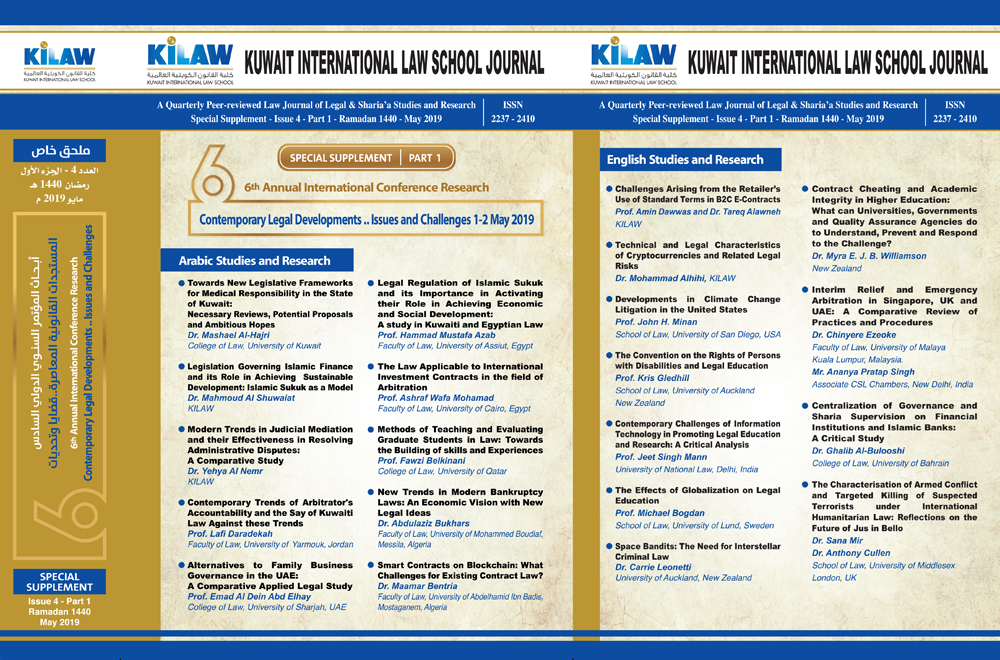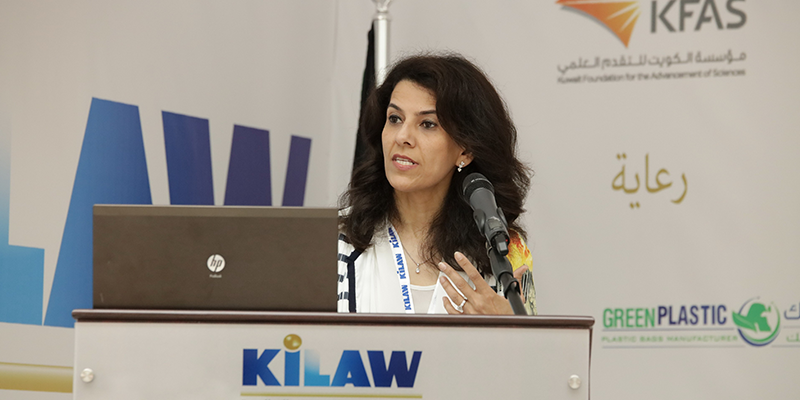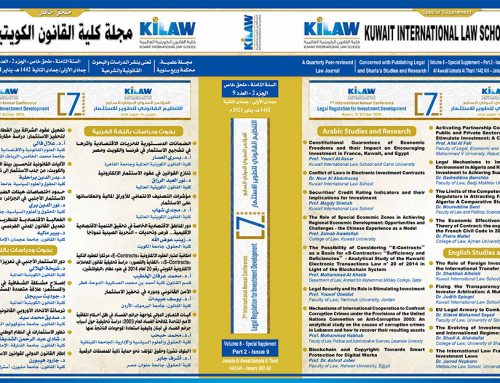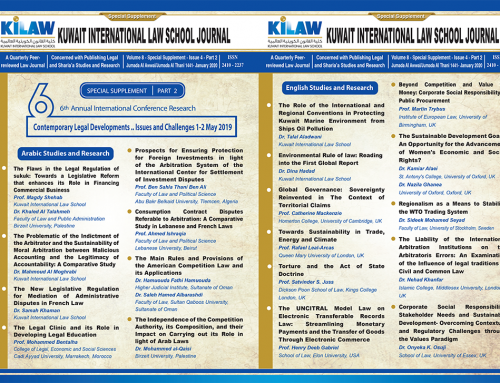Chief-in-Editor Prof. Badria A. Al-Awadi
The events and developments occurring in different regions of the world, taking the form of ethnic, commercial, political or other forms of conflicts, confirm the decline of the status of the human being, human rights, and human values and principles in local, regional and international policies and relations. This is despite the prevalence and strength in the position of human rights after the Second World War with the establishment of United Nations Organization for International Peace and Security (1945) and its specialized organizations, the adoption of the Universal Declaration of Human Rights (1948) and the International Covenant on Civil and Political Rights and the International Covenant Economic, Social and Cultural Rights (1966), in addition to a number of other steps and actions coinciding with the independence movement of the majority of Arab and Islamic countries from colonial countries, declaring constitutions and enacting laws that uphold the human rights and urge solidarity and interdependence. An exception is the state of Palestine as it is still under the Israeli occupation, which committed, and still commits, massacres and crimes that do not differentiate between young and old or man and woman, including violations of the sanctity of religious holy places (mosques and churches), land confiscation, house demolitions, forced displacement and others.
However, the end of the twentieth century and the beginning of the twenty-first century witnessed sharp declines affecting human status, human rights in particular and values and principles of humanity in general. Europe has known the largest crimes against humanity in the modern era represented in the genocides and ethnic cleansing in Bosnia and Herzegovina (1992-1995), in which more than 300,000 people were murdered. These crimes culminated with the Srebrenica massacre, which were committed under the watchful eye of the Dutch UN troops who did nothing to stop it. Asia has also witnessed a similar tragic event of genocides and ethnic cleansing committed by the authorities against the Rohingya minority in Myanmar (2019), which included crimes of an unspeakable cruelty such as bayoneting of pregnant women, raping and murdering them, burning members of the Rohingya alive, and expelling them from their villages and homes to face starvation, death and diseases during their journey seeking asylum in Bangladesh. Despite these recent heinous crimes, the international community has done nothing but condemning these crimes without taking any real measures to impose accountability and urge the return of refugees.
On the other hand, disregarding the status of human rights took other forms with contemporary developments, where tens of thousands and even hundreds of thousands and sometimes millions were victims of commercial, economic and technological wars occurring between the major Powers: the United States, China, the European Union and others. This coincided with an increasing prevalence of poverty and a decline in the attention given to health, education and other issues, as well as an increase in violations of privacy rights and the involvement of governments and groups in acts of misinformation, counterfeiting and disseminating false news with the help of the rapid technological developments. This is in addition to abuse committed against refugees and Muslim minorities in China, a number of European countries and the United States which provide evidence of the dramatic decline in the status of the human being and human rights in particular and values of humanity in general.
What draws attention to these negative developments of the status of human dignity and rights is that their accumulation has created a state of normalization, acceptance and sometimes justification by some. This is a dangerous matter and should be addressed as it threatens the safety and advancement of local, regional and international communities alike. The responsibility to challenge this threat is a shared responsibility of governments and states, as well as intellectuals and researchers in the fields of law, legislation and human rights. It is therefore natural that conferences, symposia, newspapers, magazines and media should serve as platforms and means of influencing public opinion with the aim of urging relevant parties to restore respect for human dignity and human rights in particular and for the values of human solidarity and interdependence in general.


























